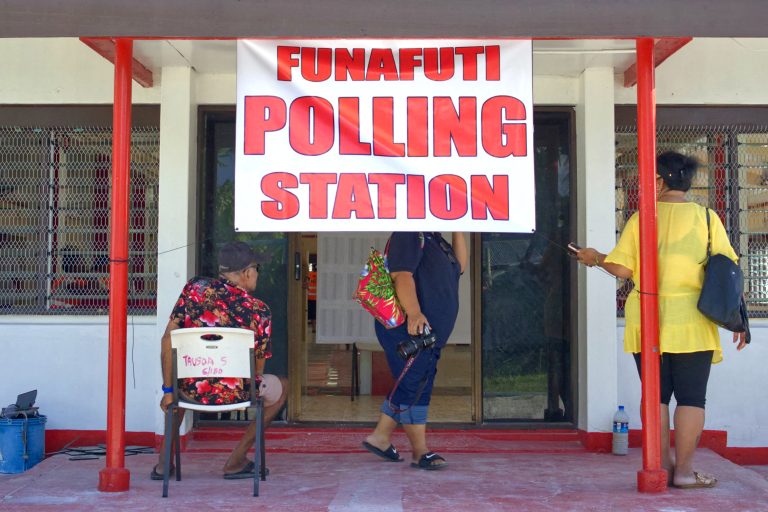Tuvalu’s recent elections culminated in Prime Minister Kausea Natano’s loss of his parliamentary seat. His defeat could impact the island nation’s relations with Taiwan and a security treaty with Australia.
According to the election results on Jan. 27, Natano failed to secure enough votes to remain within Parliament. His rival, Finance Minister Seve Paeniu, was reelected without a vote given there were just two candidates in his constituency, Tuvalu TV said, citing the election commission.
Paeniu said he would seek the approval of lawmakers to succeed Natano as prime minister, declaring he would review Tuvalu’s relations with Taiwan; a source of contention within the Pacific region.
“There is one politician in particular who has expressed interest in revisiting the relationship with Taiwan and whether or not we should be switching to China,” Simon Kofe, a former foreign minister of Tuvalu, said, adding that the diplomatic recognition of Taiwan or China was one of several critical issues affecting the formation of a new government.
Beijing says it will deny recognition of countries that have formal relations with Taipei. The communist nation has attempted to tempt island nations in the Pacific to deprive Taiwan international support.
Success
You are now signed up for our newsletter
Success
Check your email to complete sign up
Nauru, another Pacific island nation, cut ties with Taiwan earlier this year, reducing Taiwan’s count of diplomatic allies to 12 countries. Two Pacific island nations, Palau and Marshall Islands, still recognize Taiwan’s government.
Though it does not have formal political parties, Tuvalu — with a population of around 11,000 people — features eight constituencies, with two representatives to Parliament in each constituency. According to Radio New Zealand, around “half of those elected are first time legislators.”
Speaking to BenarNews last month, Paeniu said that Tuvalu is looking for $1.3 billion to afford a land reclamation plan that would dwarf the most populated island, Fongafale; half of which would be “inundated” during the high tide by 2050.
Despite its dwindling support, Taiwan also expressed its congratulations to Tuvalu on the elections, hoping to continue cooperation between the two governments amidst the tensions with China.
“The majority of the known newly elected members of the parliament are supportive of the Taiwan-Tuvalu relationship,” Taiwan’s Ministry of Foreign Affairs (MOFA) said, claiming that these people “maintain a friendly stance [towards Taiwan] and “back the continuation of the ties between the two countries,” as reported on Focus Taiwan.
READ MORE:
- Chinese Dissident Detained After Pledging Allegiance to Taiwan’s Government
- US and Chinese Officials Target Fentanyl Crisis in High-Stakes Meeting
- CCP Sends 39 Aircraft and Vessels to Harass Taiwan During Talks With Washington
Security treaty with Australia
Natano had been criticized by politicians for not consulting enough concerning the signing of a security treaty with Australia last year at the annual summit of the Pacific Islands Forum.
The treaty, called the Falepili Union, would give Australia the power to decide how Tuvalu forms its defense ties with other nations, claiming to aid the island nation in response to any threats. It also grants Tuvaluans a special visa category that would allow them to live and work in Australia, in response to projected sea-level rise.
“Some politicians have also expressed their view on the treaty with Australia, and there was some strong opposition on that as well, so I think those are probably two key issues that may influence the groupings after the election results,” Kofe said.
So far, Australian Foreign Minister Penny Wong congratulated Tuvalu on its “successful election,” adding that Canberra will not interfere in future moves by the atoll nation to sever ties with Taiwan, SCMP wrote.

















